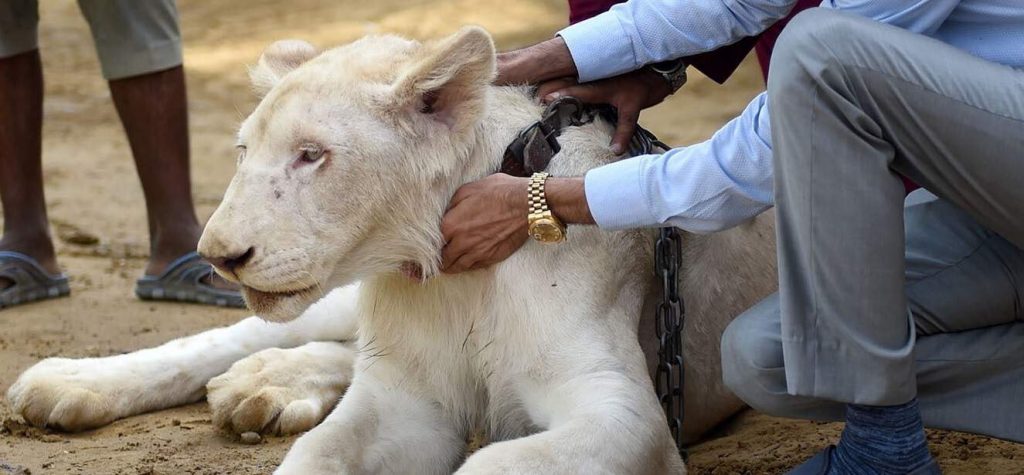Industrialist Bilal Mansoor Khawaja beams as he pets his white lion, one of the thousands of exotic animals at his personal “zoo.”
Khawaja calls his handful of lions and a tiger the “crown jewels” of a larger collection of more than 4,000 animals he has amassed in recent years. He insists his zoo — made up of some 800 different species — is not about status or prestige but simply a manifestation of his love for pets. And to care for his flock, he has more than 30 people working in shifts and four vets on staff. Bilal admits that the entire setup costs a fortune although he refuses to provide an estimate of how much.
His nine-acre property where a portion of his animals, including zebras, flamingos, and horses, reside is right in the middle of a dense neighbourhood in Karachi.

Bilal, in his conversation with AFP on wild animals as pets, revealed that there are up to 300 lions within Karachi, kept in gardens, inside rooftop cages, and at farmhouses across the metropolis.
Bilal is among those wealthy Karachiites who have a penchant for wild and exotic animals and likes to keep them in their homes as pets. Pictures of them cruising with their lions sitting in the front seats of luxury SUVs, have often made it to social media and invited uproar but little has been done about this.
Pakistani laws make it easy to import exotic animals, but once inside the country regulation is almost non-existent. This has led to an untold number of such creatures being imported or bred across Pakistan in recent times.

Exotic animal dealer Aleem Paracha, who claims to be one of the top three importers of exotic animals in Karachi, says that for 1.4 million rupees ($9,000) he can deliver a white lion to a client in up to 48 hours —and do so entirely legally.
Certificates from the countries of origin along with permits from authorities are provided for any animal brought into Pakistan in accordance with an international treaty to protect endangered species.

But Paracha says there is also a network of breeders across Pakistan that can also provide lions at a moment’s notice. He added that lion farming has become very popular in the city.
This has lead to a deterioration in their health. Karachi veterinarian Isma Gheewala says lions suffering from calcium deficiencies are common at her clinic, where she says she has treated between 100 to 150 big cats over the years.
“The bones become extremely brittle,” she explains. “And even if they jump like a foot down, they will injure some bone or the other and then it takes a long time for the animals to recover.”
But both Paracha and Khawaja dismiss claims they are doing anything harmful by taking exotic species out of their natural habit and raising them in Pakistan.







